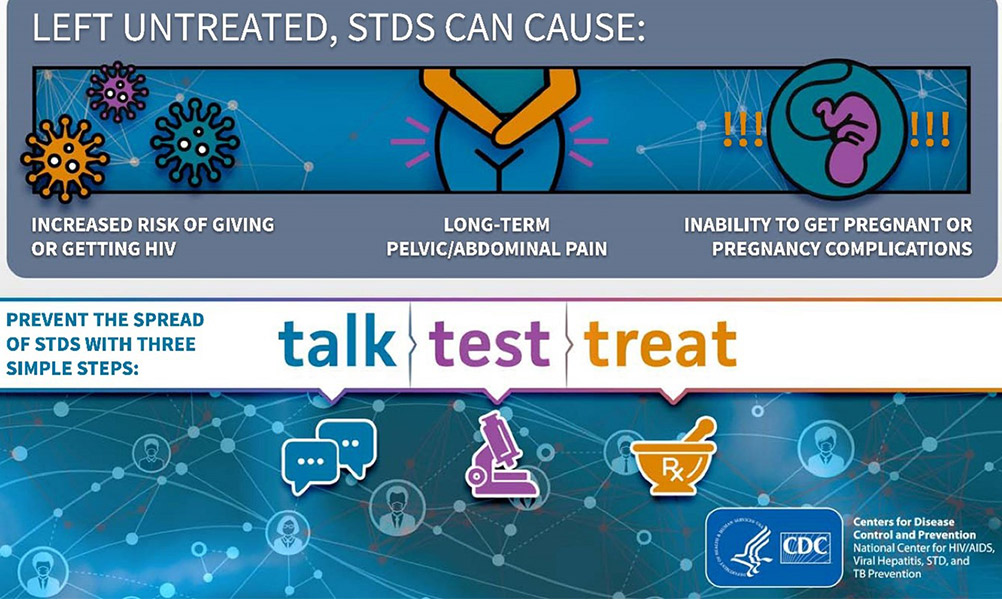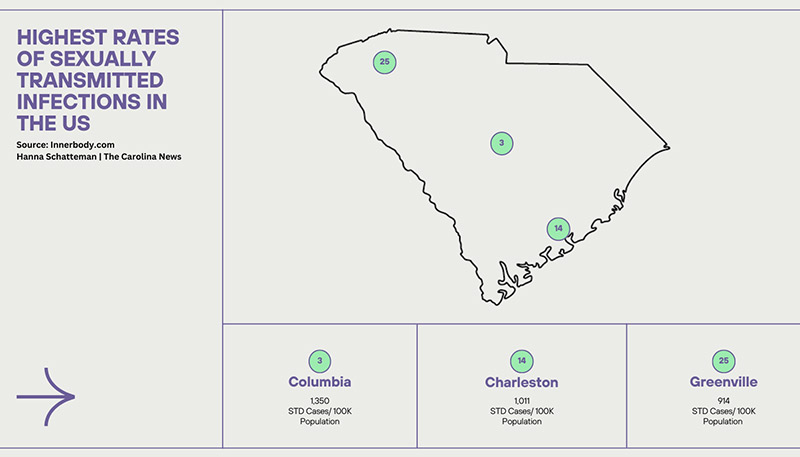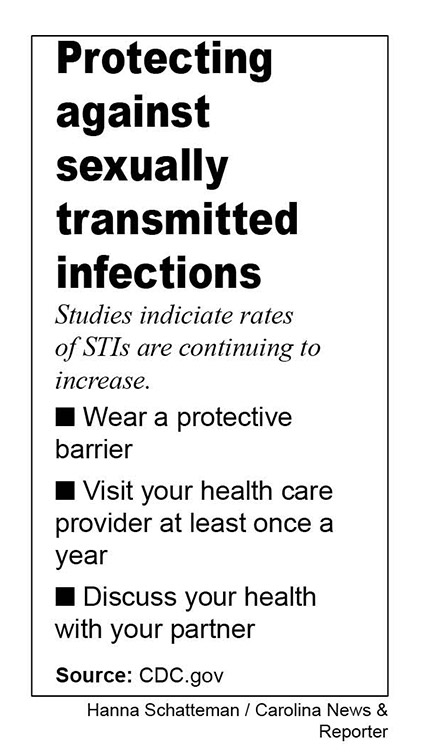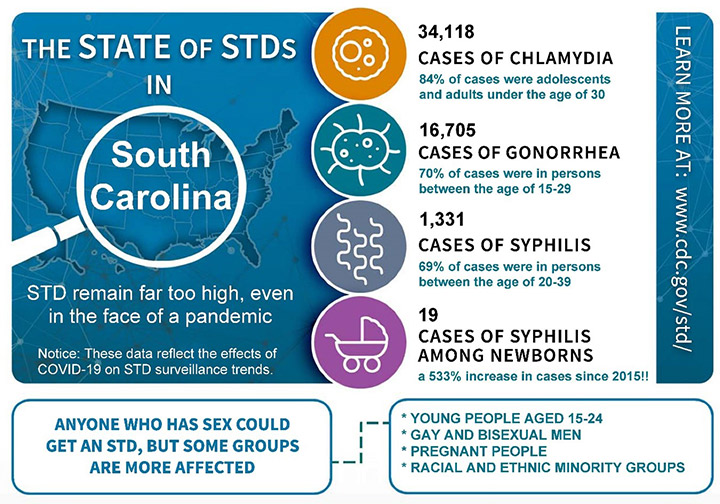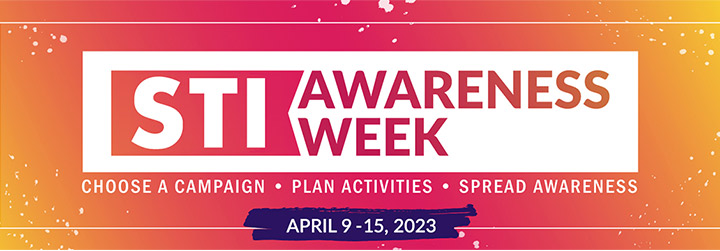The CDC advises individuals to talk, test, and treat to prevent further spread of STDs. (Image courtesy of CDC)
Columbia ranks as the No. 3 city in the United States for its rate of sexually transmitted diseases, according to a new report.
The report from Innerbody, a home and health research website, said a recent survey showed more than 1,300 STD cases per 100,000 residents in Columbia.
Other studies agree with the February report, if not with the exact numbers, at least with the trend.
A wisevoter report lists South Carolina as having the third-highest number of cases by state. Another report ranks the state No. 6 for cases, according to Innerbody.
Ali Mansaray is director of the state’s Department of Health and Environmental Control’s STD, HIV and Viral Hepatitis Division. He advocates for testing to encourage care and to prevent the spread of infection.
“With the number of certain types of STDs rising annually in South Carolina and across the nation, we can’t do enough to educate each other about the importance of STD safety, including prevention and treatment,” Mansaray said.
DHEC is recognizing National STI (sexually transmitted infection) Awareness Week through this week.
South Carolinians can visit a participating state health center from 8:30 a.m. to 5 p.m. to be tested for hepatitis C, chlamydia, gonorrhea, trichomoniasis, HIV and syphilis for free. Residents also can order a free, at-home HIV test kit through the agency’s website.
But Stephen Thacker, a physician of pediatric infectious diseases at the Medical University of South Carolina, said many people might not even realize they have an STD. And that leads to continued spread.
“Many individuals can be asymptomatic,” Thacker said. “Notably, they’re less likely to recognize symptoms with some of these infections.”
Thacker said healthcare and public health workers recognize reports are largely under-reported because of factors such as a lack of testing.
Syphilis is an example of the problem.
“We’ve seen this steady increase year over year since of syphilis rising in our communities,” Thacker said. “And because of that, syphilis is impacting babies that are born to women who have it and haven’t been treated. … It can lead to loss of life for the infant.”
Recent reports by the Centers for Disease and Control support this trend using data from 2015 to 2020.
Thacker advises individuals use a protective barrier – such as a condom – visit their healthcare provider, get tested and discuss their history with their partner.
South Carolina, unlike some other states, is a test-to-treat state, meaning individuals need to get tested for STDs before they receive treatment. But the state does allow for what Thacker calls “expedited partner therapy.” The program allows partners to receive prescription treatment without seeing a doctor themselves if their partner tests positive for an STD.
While many diseases have easy treatments, Thacker wants people to remember that not all STDs, such as HIV, can be cured.
Symptoms, duration and treatment also depend on which STD an individual has.
Another issue that contributes to the rise in cases is “access points.”
“People need to have ready access points in their community and in the South and Southeast,” Thacker said. “We talk about a lot of rural communities that might not have the same access to testing sites so they can get treatment. We need to make sure that treatment is readily available and able to be delivered where those folks show up for care.”
He also is concerned that a large percentage of people never fill their prescriptions.
Thacker said that without proper treatment, STDs have the ability to become life-threatening.
Like Thacker, Mansaray wants South Carolinians to take something away from STI Awareness Week.
“It’s about making sure that people are informed and educated,” Thacker said.

